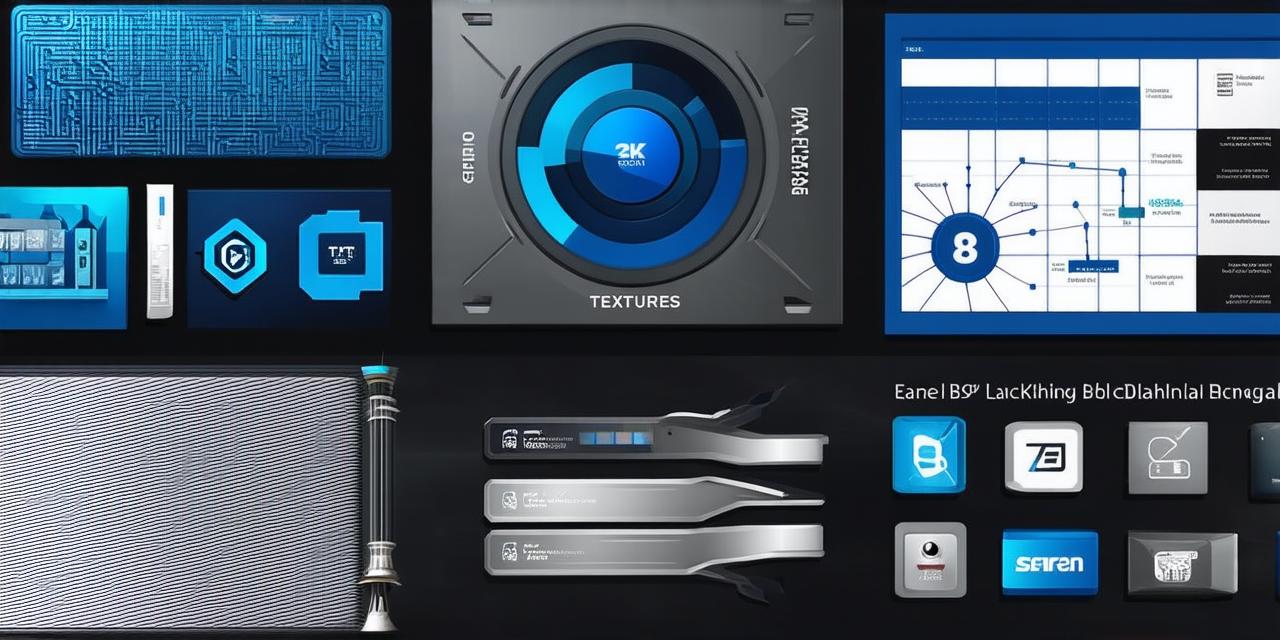The blockchain industry is growing rapidly, and it is estimated that there will be over 2 million blockchain developers worldwide by 2030. With such a large number of developers, the choice of programming language can have a significant impact on the success of a project. In this article, we will explore the importance of language selection for blockchain development and provide some insights into which languages are best suited for different use cases.
Introduction
Blockchain technology is revolutionizing many industries by enabling secure, transparent, and decentralized transactions without intermediaries. The most well-known example of blockchain is Bitcoin, but there are many other applications of this technology, such as supply chain management, voting systems, and identity verification.

Programming Languages for Blockchain Development
There are several programming languages that are commonly used for blockchain development. Each language has its own strengths and weaknesses, and the choice of language depends on the specific requirements of a project.
-
Solidity – Solidity is the primary language for smart contract development on Ethereum. It is a Turing-complete language that enables developers to create complex decentralized applications (dApps) using a high-level abstraction. Solidity has a strong community and a vast library of tools and frameworks, making it an attractive choice for blockchain developers.
-
Java – Java is another popular language for blockchain development. It is known for its portability, scalability, and reliability, which make it suitable for enterprise-level applications. Java also has a large community of developers and a wide range of libraries and frameworks for blockchain development.
-
Python – Python is a versatile language that is widely used in many fields, including data science, machine learning, and artificial intelligence. It has gained popularity in the blockchain industry due to its simplicity and ease of use. Python also has a large community of developers and many libraries and frameworks for blockchain development.
-
C++ – C++ is a low-level language that is often used for system programming. It is known for its speed and efficiency, which make it suitable for high-performance blockchain applications. However, C++ has a steep learning curve and requires more expertise than other languages.
-
Go (Golang) – Go is a modern language that was designed to be fast, reliable, and scalable. It has gained popularity in the blockchain industry due to its simplicity and ease of use. Go also has a large community of developers and many libraries and frameworks for blockchain development.
Factors to Consider When Choosing a Language for Blockchain Development
When choosing a language for blockchain development, there are several factors that should be considered, including:
-
Ease of use – The ease of use of a language can affect the productivity of developers and the speed of project completion. Languages with simple syntax and intuitive code structures tend to be easier to learn and use.
-
Community support – A strong community of developers can provide valuable resources, tools, and frameworks for blockchain development. It can also facilitate knowledge sharing and collaboration among developers.
-
Performance – The performance of a language can affect the scalability and efficiency of a blockchain application. Languages that are optimized for speed and efficiency tend to be better suited for high-performance applications.
-
Security – Blockchain applications require strong security measures to prevent attacks and protect user data. Languages that have built-in security features or can easily integrate with security libraries and frameworks tend to be more secure.
-
Portability – Blockchain applications may need to run on different platforms and devices, so it is important to choose a language that is portable and can be easily deployed across multiple environments.
-
Use case – The specific requirements of a blockchain application may dictate the choice of language. For example, a supply chain management application may require a language with strong data modeling capabilities, while a voting system may require a language with strong cryptography and consensus algorithms.
Case Studies and Personal Experiences
There are many successful blockchain projects that have been developed using different programming languages. Here are some examples:
-
Ethereum – Ethereum is the most well-known blockchain platform, and it uses Solidity as its primary language for smart contract development. Ethereum has a large and active community of developers, and there are many tools and frameworks available for building dApps on this platform. One example of an Ethereum project that has been developed using Solidity is OpenZeppelin, an open-source library of secure smart contracts.
-
Hyperledger – Hyperledger is an open-source blockchain framework that was developed by IBM and other leading technology companies. Hyperledger uses Go (Golang) as its primary language for smart contract development. One example of a Hyperledger project that has been developed using Go is Food Trust, a supply chain management platform that enables secure and transparent tracking of food products from farm to table.
-
Corda – Corda is a blockchain platform that was developed by Ripple Labs. Corda uses Java as its primary language for smart contract development. One example of a Corda project that has been developed using Java is the Notary Public Platform, which enables secure and transparent identity verification for financial transactions.
-
Bitcoin – Bitcoin is the first and most well-known blockchain, and it uses C++ as its primary language. Bitcoin was developed by Satoshi Nakamoto in 2008, and it has since become a standard for cryptocurrencies. While Bitcoin development requires expertise in C++, there are many resources available for developers who want to contribute to this project.
-
EOS – EOS is a blockchain platform that uses C++ as its primary language for smart contract development. EOS was developed by Block.one and is known for its high scalability and fast transaction times. One example of an EOS project that has been developed using C++ is the Delegated Proof-of-Stake (DPoS) consensus algorithm, which enables faster and more efficient consensus in blockchain networks.
Summary
In conclusion, the choice of programming language for blockchain development depends on the specific requirements of a project and the preferences of developers. Solidity is the primary language for smart contract development on Ethereum, while Java, Python, C++, and Go are also popular languages for blockchain development. When choosing a language, factors such as ease of use, community support, performance, security, portability, and use case should be considered. There are many successful blockchain projects that have been developed using different programming languages, including Ethereum, Hyperledger, Corda, Bitcoin, and EOS.
